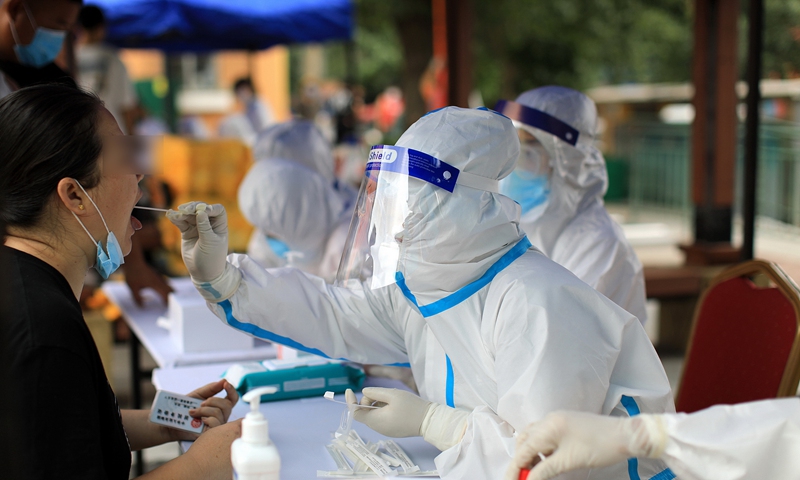Dalian outbreak unrelated to Beijing, Xinjiang cases: local official
By Leng Shumei Source: Global Times Published: 2020/8/3 11:15:26

Dalian Photo:VCG
The possibility of clustered infections in Dalian being caused by domestic cases can be preliminarily ruled out, as the cases have been found to be unrelated to those discovered in Beijing and Northwest China's Xinjiang Uygur Autonomous Region, local authorities said Monday.Zhao Zuowei, director of the Dalian Health Commission, said at a press conference Monday that gene sequencing results showed that the virus which caused the infections is different from that circulating domestically.
The outbreak has proven to be unrelated to those in Urumqi, Beijing, Harbin or Suifenhe in Northeast China's Heilongjiang Province, Zhao said.
It is possible that the outbreak was caused by imported cases, Zhao said, noting that experts are working on tracing the source of the particular strain.
According to Dalian health authorities, the city discovered eight local COVID-19 cases on Sunday, pushing the total number discovered since July 22 to 87.
The infections likely started in the Dalian Kaiyang Seafood Company's processing workshops on July 9 and rapidly spread among the workshops before spreading to the outside, Zhao said.
Gene sequencing results showed that the virus discovered among cases inside and outside the company are highly homologous, Zhao noted.
To date, more than 60 employees from the workshops have been confirmed infected, showing a prevalence rate of 61.9 percent. Eighty-three percent of all the existing cases in Dalian live around where the company is located, Zhao said.
The outbreak occurred in a comparatively limited area without leading to wider community transmission, Zhao noted.
"The problem does lie in seafood, but in the cold-chain transportation method as it provides an environment suitable for the virus to survive," said Yang Zhanqiu, a virologist from Wuhan University, Hubei Province. He called for stricter management and checks on all imported products through cold-chain transportation.
Chinese customs has been enhancing management of imported meat and seafood products after the Beijing Xinfadi wholesale market outbreak, including coronavirus checks on imported cold-chain products.
Amid the serious pandemic situation, the national customs bureau on July 10 announced the suspension of imports of meat and aquatic products from 23 countries, including the US, Germany and Brazil.
The Kaiyang company mainly engages in seafood imports and exports, according to the company's website.
The company has been closed since July 22 after the first case was reported. On July 30, Beijing authorities ordered seafood products from three companies, including Kaiyang, to be removed from sale.
The country is also enhancing management of seafood markets. China's central government has stipulated that major food markets should test their environment and employees weekly, while smaller ones should conduct such testing every month to prevent outbreaks.
Posted in: SOCIETY